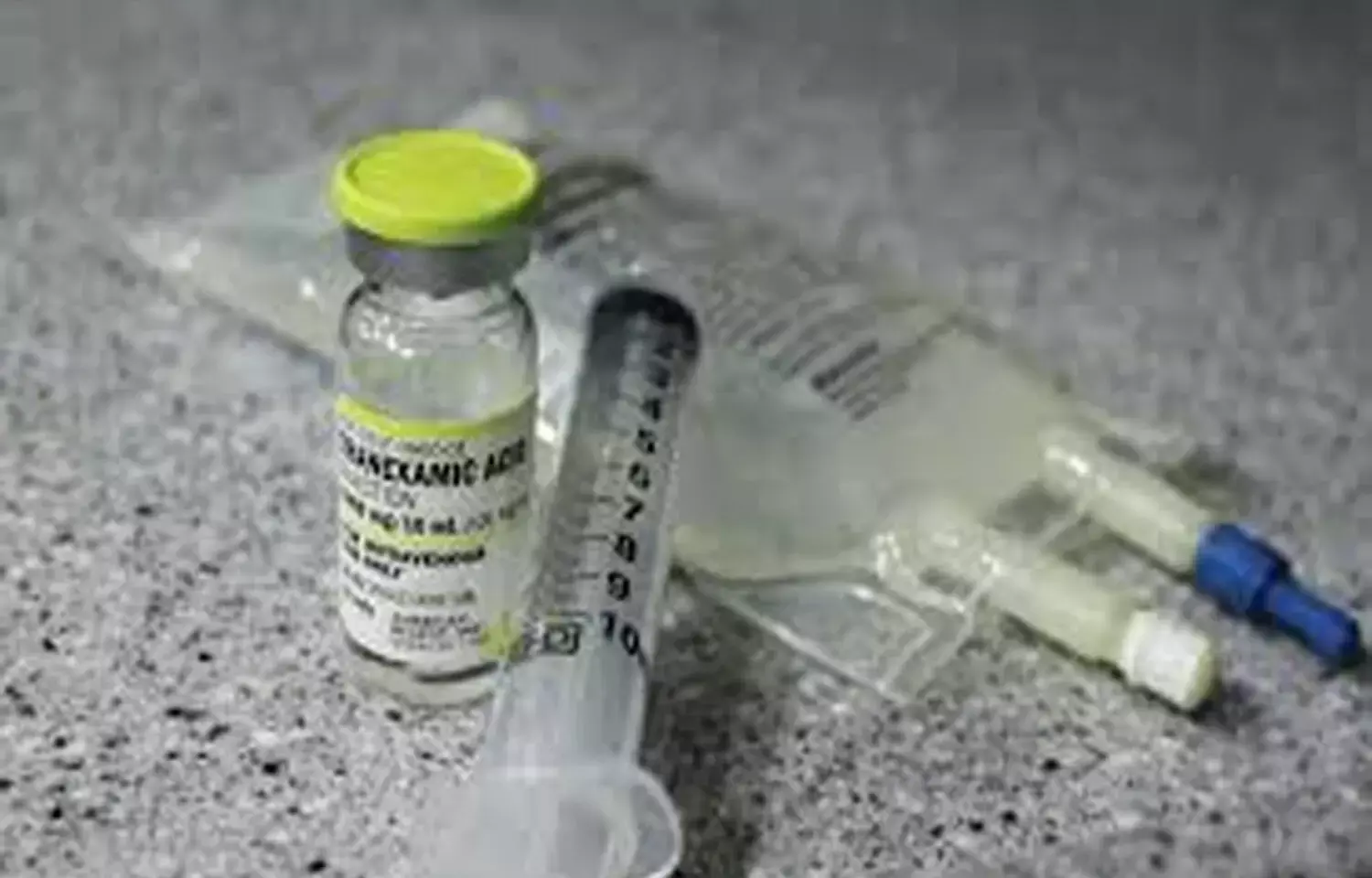- Home
- Medical news & Guidelines
- Anesthesiology
- Cardiology and CTVS
- Critical Care
- Dentistry
- Dermatology
- Diabetes and Endocrinology
- ENT
- Gastroenterology
- Medicine
- Nephrology
- Neurology
- Obstretics-Gynaecology
- Oncology
- Ophthalmology
- Orthopaedics
- Pediatrics-Neonatology
- Psychiatry
- Pulmonology
- Radiology
- Surgery
- Urology
- Laboratory Medicine
- Diet
- Nursing
- Paramedical
- Physiotherapy
- Health news
- Fact Check
- Bone Health Fact Check
- Brain Health Fact Check
- Cancer Related Fact Check
- Child Care Fact Check
- Dental and oral health fact check
- Diabetes and metabolic health fact check
- Diet and Nutrition Fact Check
- Eye and ENT Care Fact Check
- Fitness fact check
- Gut health fact check
- Heart health fact check
- Kidney health fact check
- Medical education fact check
- Men's health fact check
- Respiratory fact check
- Skin and hair care fact check
- Vaccine and Immunization fact check
- Women's health fact check
- AYUSH
- State News
- Andaman and Nicobar Islands
- Andhra Pradesh
- Arunachal Pradesh
- Assam
- Bihar
- Chandigarh
- Chattisgarh
- Dadra and Nagar Haveli
- Daman and Diu
- Delhi
- Goa
- Gujarat
- Haryana
- Himachal Pradesh
- Jammu & Kashmir
- Jharkhand
- Karnataka
- Kerala
- Ladakh
- Lakshadweep
- Madhya Pradesh
- Maharashtra
- Manipur
- Meghalaya
- Mizoram
- Nagaland
- Odisha
- Puducherry
- Punjab
- Rajasthan
- Sikkim
- Tamil Nadu
- Telangana
- Tripura
- Uttar Pradesh
- Uttrakhand
- West Bengal
- Medical Education
- Industry
IV use of tranexamic acid not linked to thromboembolism risk: Study

Germany: IV administration of tranexamic acid (TXA) does not increase the risk of thromboembolism, irrespective of dosing, according to a recent review published in the journal JAMA Surgery.
"The findings suggest that tranexamic acid (TXA) use is safe with undetermined utility for patients receiving neurological care," wrote the authors.
Tranexamic acid is an efficient antifibrinolytic agent; however, there are concerns about its potential adverse effects associated with its use, particularly vascular occlusive events. To clarify the same, Isabel Taeuber, University Hospital Frankfurt, Frankfurt am Main, Germany, and colleagues aimed to examine the association between intravenous tranexamic acid (TXA) and total thromboembolic events (TEs) and mortality in patients of all ages and of any medical disciplines.
For this purpose, the researchers searched the online databases for eligible studies that investigated IV TX and postinterventional outcomes published between 1976 and 2020.
The review included RCTs comparing intravenous TXA with placebo/no treatment. Studies with only oral or topical tranexamic administration were excluded. A total of 216 eligible trials including 125 550 patients were analyzed.
Key findings of the study include:
- Total TEs were found in 1020 (2.1%) in the group receiving TXA and 900 (2.0%) in the control group.
- This study found no association between TXA and risk for total TEs (risk difference = 0.001) for venous thrombosis, pulmonary embolism, venous TEs, myocardial infarction or ischemia, and cerebral infarction or ischemia.
- Sensitivity analysis using the risk ratio as an effect measure with (risk ratio = 1.02) and without (risk ratio = 1.03) studies with double-zero events revealed robust effect size estimates.
- Sensitivity analysis with studies judged at low risk for selection bias showed similar results.
- Administration of TXA was associated with a significant reduction in overall mortality and bleeding mortality but not with nonbleeding mortality.
- An increased risk for vascular occlusive events was not found in studies including patients with a history of thromboembolism.
- Comparison of studies with sample sizes of less than or equal to 99 (risk difference = 0.004), 100 to 999 (risk difference = 0.004), and greater than or equal to 1000 (risk difference = −0.001) showed no association between TXA and incidence of total TEs.
- Meta-regression of 143 intervention groups showed no association between TXA dosing and risk for venous TEs (risk difference, −0.005).
"Findings from this systematic review and meta-analysis of 216 studies suggested that intravenous TXA, irrespective of dosing, is not associated with increased risk of any TE," wrote the authors. "These results help clarify the incidence of adverse events associated with administration of intravenous TXA and suggest that TXA is safe for use with undetermined utility for patients receiving neurological care."
Reference:
The study titled, "Association of Intravenous Tranexamic Acid With Thromboembolic Events and Mortality: A Systematic Review, Meta-analysis, and Meta-regression," is published in the journal JAMA Surgery.
DOI: https://jamanetwork.com/journals/jamasurgery/article-abstract/2778639
Dr Kamal Kant Kohli-MBBS, DTCD- a chest specialist with more than 30 years of practice and a flair for writing clinical articles, Dr Kamal Kant Kohli joined Medical Dialogues as a Chief Editor of Medical News. Besides writing articles, as an editor, he proofreads and verifies all the medical content published on Medical Dialogues including those coming from journals, studies,medical conferences,guidelines etc. Email: drkohli@medicaldialogues.in. Contact no. 011-43720751


